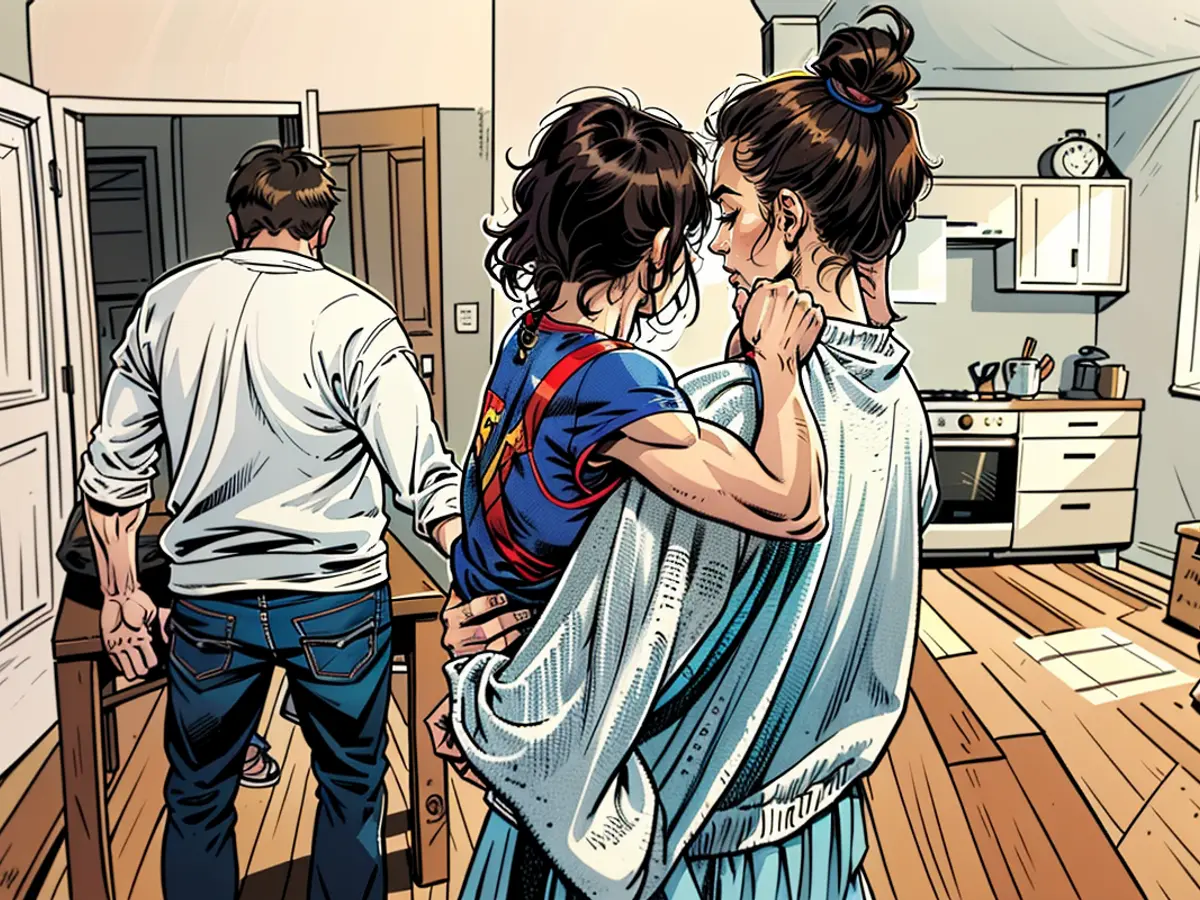Exploring New Living Spaces: Six Insights into Distant Rent Payments
The newly found apartment is perfect, the contract is ready to be signed, but the previous tenant unexpectedly asks for a deposit. Either to vacate the place early or as compensation for leaving certain furniture behind. Sometimes landlords also request extra cash above the rent. Is this legal and do you have to pay? Here are 6 facts about deposits and compensation.
Fact 1: Deposits can be legal with specific exceptions
Legally, demanding a deposit can be tricky. It depends on whether it's the tenant or the landlord requesting money, and what the funds are intended for.
Landlords usually cannot link the rental agreement's conclusion to an additional fee, reimbursement of expenses, or any similar payment. This stems from the Residential Tenancy Act (Wohnungsvermittlungsgesetz - WoVermG).
However, worn-out furniture like tables and chairs can sometimes be utilized as a backdoor to collect an additional payment, potentially a hidden rental or contract conclusion fee. According to Beate Heilmann, a lawyer and chairwoman of the Tenancy Law and Real Estate Working Group in the German Bar Association, that's not allowed either. On the other hand, transferring valuable inventory at a fair price is permitted.
Previously, tenants are not allowed to demand money for vacating the apartment on the agreed date. They are already obligated to do so through the termination notice. In some cases, they may have agreed with the landlord to recommend a new tenant, for which they then ask the landlord for payment. This is not permissible, according to Heilmann.
If you are asked to accept the old cabinet or worn-out kitchen from the previous tenant for a specific amount, this type of purchase price may be acceptable in certain situations.
Fact 2: The payment should be reasonable
To determine if the deposit amount is fair, you can use the current value. Age and condition of the inventory are important factors to consider. "The price is fair if it corresponds to the current value," says Heilmann. When the transfer involves money, it is generally not objectionable. However, if there's a significant gap between the actual value and the deposit, such as a 20,000 euro deposit for a 30-year-old, heavily used built-in kitchen, it's going overboard.
Sometimes the deposit is not to be paid upfront but is added to the rent as a "furnishing or wear and tear surcharge" for built-in cabinets, bathroom furniture, or seating furniture. The current value applies here too, and there are limits. For example, demanding an extra 200 euros per month for a 2,000 euro expensive cabinet is not reasonable since the cost would be exceeded after just one year.
"The deposit is too high if the current value is not considered," emphasizes Monika Schmid-Balzert from the Munich Tenants' Association. In doubtful situations, consulting with the tenants' association or a rental lawyer can be helpful.
Fact 3: No extra charge for heating options
Some apartments come with heating sources like fireplaces and stoves. It's important to know: if these are the only heating options, you don't have to pay a fee. The same rule applies to water heaters. "Heating and hot water production are the landlord's responsibility and are included in the rent," says Schmid-Balzert. In other words, landlords cannot charge an additional fee.
If the fireplace and stove provide supplementary heating, the decision to pay for the extra feature is up to you.
Fact 4: Fee payments are optional
You are not obligated to pay for built-in furniture and appliances left behind by the previous tenant. They must take them with them when they move out, unless you specifically want to keep them. Additionally, you are not required to pay a deposit to the landlord for any inventory left behind by the previous tenant.
However, refusing to pay often leads to not getting the apartment. "In practice, I don't get the apartment," says tenant advocate Schmid-Balzert. The main decision for renters is usually: Is the apartment worth the fee - and can I afford it?
Fact 5: Written agreements are suggested
If you wish to fulfill financial requirements, it's recommended to record the agreement in writing for evidence purposes. Schmid-Balzert suggests drawing up a purchase agreement with the previous tenant, specifying the items and conditions.
For items taken over from the landlord, they can be agreed upon in the rental agreement, possibly under "Miscellaneous." Alternatively, a separate agreement can be concluded independently of the rental agreement.
Fact 6: After payment, items belong to you
Upon payment, the purchased items become yours. As the owner, you can do whatever you want with them, such as throwing them away, selling them, using them, taking them with you when you move out, or selling them to the next tenants.
Caution: This does not apply to items for which you pay a usage fee to the landlord during the rental period.
In some cases, landlords may attempt to charge an extra fee beyond the rental for using worn-out furniture like tables and chairs, which is not legally permissible according to Beate Heilmann. Tenants are not allowed to demand money for vacating the apartment early or as compensation for leaving certain furniture behind, as they are already obligated to do so through the termination notice.







